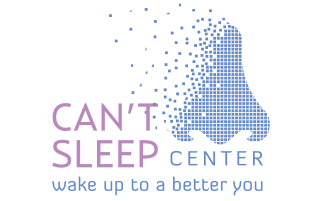How To Stop Snoring?
To prevent snoring, you can try these solutions:
- Sleep on your side. If you find that difficult, you can sew a tennis ball to your pajamas or place a heavy pillow behind your back.
- Elevate your head. Sleep with your head raised at about four inches. This helps open the airways.
- Increase air moisture. If you have chronic sinusitis or other allergies, a humidifier may help.
- Avoid alcohol and tranquilizers. They cause your throat muscles to relax and interfere with normal breathing.
- Lose weight. This will reduce fatty tissues in your neck and increase airflow.
- Quit smoking. Smoking causes inflammation which narrows your air passages. It is often associated with snoring.
- Get more sleep. Snoring may be due to sleep deprivation. Try sleeping at least 7 hours per night to see if this helps solve the problem.
Keep In Mind
If home remedies don’t help, you should consult a sleep specialist. Snoring may be a sign of Obstructive Sleep Apnea.
Custom-fitted oral appliances (dental devices) are the least obtrusive of all medical solutions for snoring. You wear them only while you sleep to keep your airway open.
Here’s why you might want to consider this option:
- Comfortable. You can eat, drink, and talk with your oral appliance.
- Easy to get used to. It takes no more than 2 weeks to grow accustomed to an oral appliance.
- Plenty of options. There are over 100 FDA approved oral appliances. Your dentist will help you find the shape and material that feel right for you.
- Non-invasive. You don’t have to undergo surgery to use an oral appliance.
- Discreet. Oral appliances don’t produce any noise and they are not visible when your mouth is closed.
- Portable.You can travel with your oral appliance anywhere because it fits in your pocket.
- Immediate results. Most patients feel refreshed and energized in just one night.
- Professional assistance. A dentist will ensure that the device is fitted to your jaw.
The patient wears a mask over their face while a machine forces pressurized air to keep the air passages open and prevent snoring.
This treatment is often avoided by patients due to the discomfort it causes them. Besides the noise from the air compressor, the machine may also cause issues like voice changes, skin irritations, and throat dryness.
If your condition doesn’t require you to use a CPAP machine, you are probably a good candidate for an oral appliance. Consult a Dental Sleep Specialist to find out if this is an option for you.
Surgery may seem attractive because it sounds like a one-and-done option. However, not everyone is a good candidate for such procedures and the results are very difficult to predict.
Surgical interventions usually solve the problem in one of two ways:
- Removal of tissues. Procedures like Uvulopalatopharyngoplasty (UPPP), Thermal Ablation Palatoplasty (TAP), tonsillectomy, and adenoidectomy aim to increase the size of the airway by removing tissues.
- Modifying the uvula and the soft palate. Laser-assisted uvulopalatoplasty (LAUP), palatal implants, and somnoplasty are among the less invasive procedures. They prevent snoring by keeping the soft palate from collapsing in the throat.
